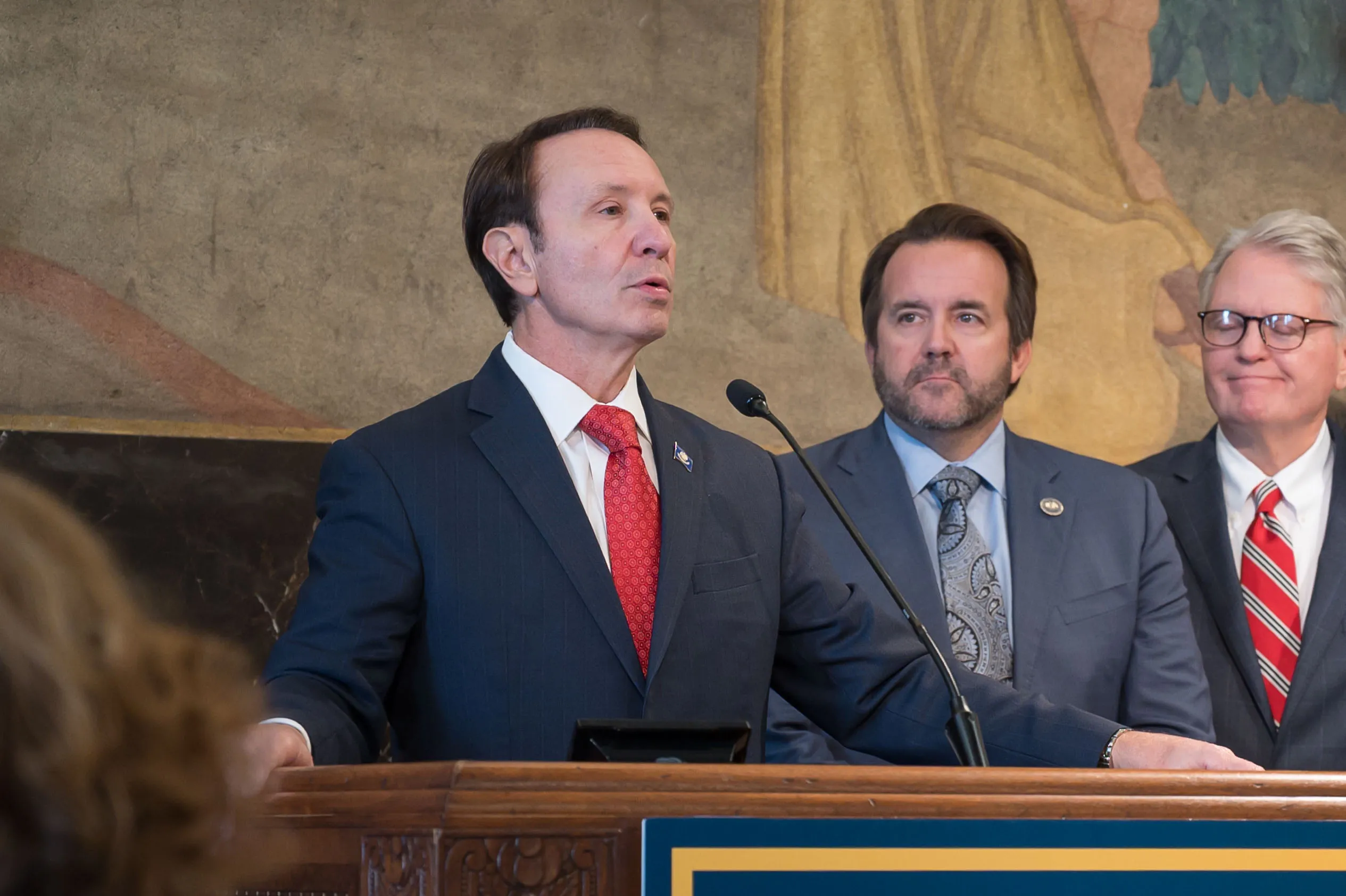Copyright American Press

By Courtney Bell and Avery White | LSU Manship School News Service Louisiana is one of the few politically red states — and the only one in the Deep South — stepping up to fund SNAP benefits amid a federal suspension of food assistance payments. Louisiana legislators last week called for redirecting up to $150 million from the state’s health department budget to send November SNAP money directly to about 740,000 recipients. The money is being rolled out in phases, with a quarter of the recipient’s monthly amount being loaded onto their cards each week. The state is sending funding to its “most vulnerable population,” Gov. Jeff Landry said, prioritizing elderly residents, those with disabilities and households with children. About 53,000 able-bodied individuals with no dependents will not be receiving state-funded SNAP benefits. The state’s funding will continue through November as long as the federal shutdown continues. “First of all, I think it’s the Christian thing to do. I think it’s the moral thing to do,” said state Rep. Jack McFarland, R-Jonesboro. “I’m disappointed in the federal level that this population is being held hostage by either party, but I’m also disappointed that anybody would think that people like this should be used as leverage.” Democratic leaders in 25 states sued the Trump administration last week after it announced it would not continue funding SNAP benefits during the shutdown. The benefits have been paid during previous government shutdowns, and two federal judges ruled Friday the federal government had to pay for SNAP with benefits with contingency funds that Congress approved in the past. The Trump administration responded in court filings Monday that it would make partial payments to 42 million Americans who are eligible for food stamps in November, though it was not sure when it could load the extra money onto their purchasing cards. The SNAP payments have been caught in the middle of the fight in Washington over which party is to blame for the government shutdown. Trump said Friday that by not agreeing to end the shutdown, Democrats were “hurting their own people.” Referring to people who rely on food assistance, he said, “Largely, when you talk about SNAP, you’re talking about largely Democrats.” Speaker of the House Mike Johnson, a Louisiana Republican, urged his party members in Congress to stay in lockstep against a standalone bill to fund SNAP last week to pressure Democrats during the shutdown. “The pain register is about to hit level 10,” Johnson said, referring to complaints Democrats might receive from constituents, in a private call with House Republicans reported by Politico last week. Yet among the 50 states, Louisiana has the third highest percentage of residents on SNAP — about 18% — and they live in both urban and rural areas. And this is not the first time this year that the state Legislature, which is more than two-thirds Republican, has taken a different view from Republicans in Washington. Last spring, the Legislature passed a resolution urging Congress not to restrict funding for the Medicaid program, which over 1.6 million Louisiana residents rely on for health care. Louisiana Senate President Cameron Henry also cautioned that the changes to Medicaid could cost the state several billion dollars in federal aid. Landry said Louisiana residents who are not receiving state relief funding this month should utilize the state’s food banks and apply for jobs until federal SNAP benefits are released. “We’re going to be encouraging people to go from dependents to independents,” Landry said. However, food banks in the state worry if they have enough. Some said they are already operating with diminished inventory from serving unpaid federal workers. “It’s kind of like the perfect storm kind of situation happening, that all of a sudden the SNAP program, the federal safety net’s not functioning,” said Jayne Wright, the board chair for the Feeding Louisiana. “Food banks obviously cannot replace SNAP.” Congressional Democrats have said they would vote to end the shutdown if President Trump agrees to extend federal tax credits that help lower the cost of health insurance policies under the Affordable Care Act. Some Republicans have opposed extending the credits, though a recent survey by the Kaiser Family Foundation found that 54% of the people who rely on the policies nationally live in congressional districts that voted for Trump. Of the Deep South states that are politically Republican, Louisiana is the only one with plans to use state money to supplement the SNAP program for November. Much like Louisiana, Alabama has an estimated 750,000 residents who use SNAP. “Whatever partisanship needs to be cast aside, should be cast aside,” said Chris Sanders, the communications director of Alabama Arise, an advocacy group. “Food and healthcare are not partisan issues, they’re human issues.” The food insecurity rate in Arkansas is 18.9%, compared to the 13.5% national average, with 240,000 residents receiving SNAP benefits. While the state faces SNAP shutdown, advocates are worried about the state cutting funding for childcare vouchers. “It’s kind of the perfect storm, potentially parents aren’t going to have childcare, which means they can’t go to work and on top of all that, they’ve got kids in the home to feed and no SNAP benefits,” said Cristin Harper, policy director for Arkansas Advocates for Children and Families. Some states are sending money to their food banks to offer support instead of sending money directly to SNAP recipients. Initially, New York was sending $11 million to food banks, but last Thursday, New York Gov. Kathy Hochul, a Democrat, lifted that to a total of $106 million to go to food banks and other organizations in the state. Emily Eisner, an economist at the Fiscal Policy Institute in New York, said seeing Louisiana, a much smaller state, approve around $150 million in spending for SNAP, helped to get more support for funding in New York. Eisner said sending money directly to recipients is a better way to support them while also minimizing the burden on food banks. It would cost New York $650 million to cover its nearly three million residents on SNAP in November. Eisner said the state has a revenue surplus of $4 billion and has $29 billion in reserves. McFarland, the Louisiana state representative, said he had talked to officials from five other states about how Louisiana is responding to the withheld federal funds. He says he thinks other states could model their plans off Louisiana’s response. He said because the state has never done something like this, he expects some difficulties. But he says it is important for Louisiana residents to have money to buy food. “I think we owe it to the most vulnerable of our population. We have elderly who have no other means of having access to money to purchase food,” he said.



